Why eight hours a night isn’t enough
October 23, 2020
Why eight hours a night isn’t enough
Author: | Publish Date: October 23, 2020

Why eight hours a night isn't enough
For something that we spend a third of our lives doing (if we’re lucky), sleep is something that we know relatively little about. “Sleep is actually a relatively recent discovery,” says Daniel Gartenberg, a sleep scientist who is currently an assistant adjunct professor in biobehavioral health at Penn State. “Scientists only started looking at sleep 70 years ago.”
As anyone who has lay awake at night contemplating the complexities of the universe can attest, sleep is a slippery beast. It involves a complex web of biological and neurological processes, all of which can be thrown off by something as simple as a partner’s nasal trumpeting or a coffee too late in the day.
There are also many, many misconceptions about sleep: that you can “catch up” on the weekend for lost hours of shuteye. That you can get by on four hours’ sleep a night. That a nip of whiskey before bed helps you sleep better. Even that eating cheese before snoozing causes nightmares.
To set the record straight about being horizontal, Quartz spoke to one of the world’s most-talked-about sleep scientists. Daniel Gartenberg is currently working on research funded by the National Science Foundation and the National Institute of Aging and is also a TED resident. (Watch his talk on deep sleep here.) He’s also an entrepreneur who has launched several cognitive-behavioral-therapy apps, including the Sonic Sleep Coach alarm clock. All that with 8.5 hours of sleep a night.
Some topics we cover:
why 8.5 hours of sleep is the new eight hours
the genes that dictate if you’re a morning person or a night owl
why you should take a nap instead of meditating
how sleep deprivation can be a tool to fight depression
why sleep should be the new worker’s rights
and tips on how to get a better night’s rest (hint: it’s not your Fitbit)
You can also read Gartenberg’s comments on “sleep inertia”—the scientific reason why you feel so groggy when you wake up—here.
This interview has been lightly condensed and edited for clarity.
Quartz: Why do we need sleep?
Daniel Gartenberg: Every organism on the planet sleeps in some fashion, to some degree—even the basic fruit fly. What makes sleep so essential for our wellbeing comes down to three main things: to save our energy, to help our cells recover, and to help us process and understand our environment.
This third one is what I study. The “synaptic homeostasis hypothesis” is this idea that during the day, we make all these connections with the world around us. It used to be like, “Don’t go over there—the lions live there now.” Now it’s like, “What did Barbara say to me in the office?” These excitatory connections we make during the day result in the neurons in our brains getting overall higher activation. Then during the nighttime when we sleep, we have a downregulating process where the things that didn’t really matter to your survival sink to the bottom, and the things that are most relevant to your survival rise to the top. What deep sleep does is all the neural processing, and what REM sleep [rapid-eye-movement sleep] and light sleep do is basically integrate that into your long-term personality and understanding of the world.
What other differences are there between deep sleep and REM sleep?
A lot of people don’t understand that these are two very, very different processes. A lot of people probably learned from basic psych in high school that you have these sleep stages: light sleep > deep sleep > light sleep > REM, and repeat. As you sleep more, you get less and less deep sleep, and also if you sleep-deprive yourself, you get more deep sleep.
During deep sleep, you get these long-burst brainwaves that are called delta waves, but during REM, your brainwaves are actually functioning very similarly to waking life. Your body is also paralyzed during REM—it’s a very noticeable physiological difference. You also lose thermo-regulation, meaning if it’s hot in your environment, your body gets hot, kind of like you’re a chameleon.
Your whole thing is that deep sleep is more important than REM sleep. Why?
It’s an ongoing debate in the literature—really, it’s both. Deep sleep is really important, but REM sleep is also important. We know that the human growth hormone, cell-recovery things, and the ability to process new information are associated with deep sleep. REM sleep is basically the processing of information.
Asking for the workaholics in the room: Do we really need that much sleep?
A professor I collaborate with at Penn State named Orfeu Buxton says that 8.5 hours of sleep is the new eight hours. In order to get a healthy eight hours of sleep, which is the amount that many people need, you need to be in bed for 8.5 hours. The standard in the literature is that healthy sleepers spend more than 90% of the time in bed asleep, so if you’re in bed for eight hours, a healthy sleeper might actually sleep for only about 7.2 hours.
8.5 hours of sleep is the new eight hours.
That being said, some people are short sleepers: You can do a test to find out if you have genetic makeup that makes you a short sleeper. That’s rare, though, so by and large, people are not getting enough sleep. Getting half an hour less than what you need to really adds up over a week period.
To see how much sleep you really need, my professor suggests that when you go on vacation, try to stick to your normal bedtime and then see what time you wake up. With no stressors or time to get up, you’ll just fall into a natural pattern, and that’s probably how much sleep you actually need.
I normally get around six to seven hours of sleep a night and feel fine. But is that just because how I feel has become my normal operating mode, and I could really be functioning at a higher level?
Right. That’s like the fish and the fish bowl phenomenon: The fish doesn’t know that he’s in the fishbowl, nonetheless that he’s in water. Also, when you’re sleep deprived, research has shown that you’re really bad at being able to tell that you’re sleep deprived.
A lot of this has to do with stress in our environment and our external need to work all the time. This is what’s driving the fact that we’re sleeping so poorly nowadays.
How else does the workplace affect sleep?
I think of sleep like the new worker’s rights: We’re being worked to the point that we’re not sleeping, and it’s having physical detriments on our health and wellbeing.
People should be able to sleep like they’re able to get healthcare. This also means making our work environments more conducive to sleep. For optimum productivity, we need around eight hours of sleep, right? But that doesn’t have to be in one go. Maybe I’ll get a little less than that during the night, and then I’ll take a 20-to-30-minute power nap at midday. There’s a siesta for a reason! New Yorkers oftentimes try to pound through with coffee and whatever, but giving in to your natural circadian rhythm during that afternoon lull might be a good thing. We weren’t made to produce for eight hours straight.
Let’s talk more about circadian rhythms. What are they, and why are they responsible for that mid-afternoon slump?
We evolved from bacteria in the ocean that could differentiate sunlight from darkness—that’s what ended up forming the human eye. That means every organism is responsive to a circadian rhythm that’s largely dictated by sunlight. The photo receptors in our eyes pick up on sunlight, which controls the release of melatonin and all these other neurotransmitters that dictate your energy levels throughout the day.
You have a peak moment of awakeness during the morning. After lunch you usually have a glucose spike, especially if you have a big heavy lunch, like a cheeseburger. That glucose spike combined with a circadian dip gives you a period of fatigue between around 2 and 4pm. You’ll then have another spike in alertness right before dinner, and then you’ll start getting tired again closer to bedtime. That’s your 24-hour circadian rhythm, basically.
Then there’s also something called “chronobiology.” You actually have genes that dictate whether you’re a morning person or an evening person.
Wait—what? Really?
Yeah! If you’re a morning person, they call it a lark. If you’re a night person, they call it a night owl. Your genes give you a greater proclivity to being a lark or an owl. And then some people have genes that make them very flexible. The environmental cues they react against are called zeitgebers.
Lightsabers?
Zeitgebers! It’s this weird German word. There’s a lot of cool words in sleep: like the photo receptors control the release of melatonin by sending signals to the suprachiasmatic nucleus, just like supercalifragilisticexpialidocious.
You actually have genes that dictate whether you’re a morning person or an evening person.
Anyway, basically your biggest zeitgeber is sunlight, and that’s the environmental cue that controls energy levels as well. But then also timing of meals, exercise, and having a consistent bedtime are all zeitgebers that impact your circadian rhythm. A bigger part of the problem is that we’re indoors so much now, so we don’t get that natural occurring sunlight when you wake up in the morning. That’s one of the best things that you can do to entrench your circadian rhythm.
If your circadian rhythm is off, it negatively impacts your sleep quality. So having that consistent rhythm of going to bed and getting up at the same time will actually make your sleep more regenerative at night. Going for a walk outside and getting that sunlight in the morning is the best thing to do to wake up. Your circadian rhythm isn’t a fixed thing: It’s actually shiftable based on your environmental cues.
If you wake up in the middle of the night (say, to go to the bathroom) but get back to sleep quickly, does that screw around with your sleep quality?
It varies. There’s no clear answer. In our studies, we’ll play really loud sounds that people have no conscious awareness of at all: We can play a sound literally at 70 decibels, which is like someone screaming, and that’ll wake them up briefly and then they’ll go right back into the sleep stage that they were in. Other times you can get a full awakening, and you’ll have to go through the process again.
It’s actually pretty normal to wake up during the night, anyway. In The Canterbury Tales, one of the oldest manuscripts in English culture, they describe “second sleep.” There’s some evidence that we used to go to bed when the sun went down, then wake up for a little bit at night—putter around, make sure we’re not getting eaten by a lion—and then go back to sleep. So it’s pretty normal to like wake up in the middle of the night and use the bathroom or whatever.
How is society changing our relationship with sleep? What will be the consequences of this?
Gallup has reported that over the past 50 years, we’re sleeping a whole hour less per night than we did in the 1950s. That’s a lot. A lot of that has to do with having TV on all the time, and mobile phones are taking it to the next level. But I think the biggest issue right now is the lack of work/life balance. I mean, I’m an entrepreneur, so I feel like I’m basically always “on”. A lot of people have jobs where they’re getting emails all hours the night, and there’s no longer a nine-to-five schedule.
I think that’s why meditation is so in vogue right now. But I actually think sleep is a more regenerative process than meditation. A lot of times people talk about doing meditation around midday, but for most people I would recommend a quick power nap instead of a quick meditation.
But if I try to take a powernap at lunch and can’t get to sleep, haven’t I just wasted 20 minutes of my day that I could have been meditating—or working?
Even when you close your eyes and turn off your brain for little bit—even if you don’t fully fall asleep—your brain creeps into theta waves. Similarly, when you meditate, you get a little bit of theta. So if you’re one of these people who really has a hard time with napping, maybe meditation could be better.
Taking a break—whether it’s meditation or nap—during the circadian dip can be much more conducive to productivity.
The most important thing is taking that time off—it’s more conducive to your productivity. A lot of times people think they can like fight through and push harder and harder and harder to get better results, but sleep can give you that, too. When you transition in and out of sleep, your brain produces theta waves, which help you think more divergently. That’s why a lot of times when you wake up from a power nap or from sleeping, you’ll be able to solve that intractable problem that you couldn’t earlier in the day. That’s one of the reasons I think taking a break—whether it’s meditation or nap—during that circadian dip can be much more conducive to productivity.
This is especially true for creative jobs. Jobs used to be very manual, but as jobs are becoming more and more cognitive, I think caring for your cognition is going to become increasingly important for the work.
What are some tips for getting a better sleep?
You want a cold, quiet environment with no light: That’s basically the ideal way to improve your sleep quality. However, people have a different ideal sound, light, and temperature environment to improve their sleep quality. We need stimulus control: You want to save the bedroom for sleep and sex.
SOUND: We focus on sound a lot. Quiet environments are going to improve your sleep quality. Your brain has these micro arousals throughout the night without you being consciously aware of it—even an air-conditioning unit turning on wakes up your brain. So blocking out noises is a low-hanging fruit to improve your sleep quality. Bose just released an earbud that you can sleep with, for example.
There’s this new finding where playing sounds at a certain frequency when your brain is in deep sleep actually increases the percentage of time spent in deep sleep. We’re publishing this paper in Society for Neuroscience Conference in a couple of weeks, and it’s basically what my TED talk is about. Playing these pulses at the same frequency as your deep-sleep brainwaves primes more deep sleep. Scientifically speaking, it’s a similar process as transcranial direct-current stimulation, except it doesn’t use electricity—just sound. Sound gets transmitted into electricity because you’re picking up on the auditory cortex while you’re sleeping.
TEMPERATURE: This is a big problem, especially if you have a sleep partner. Everyone has different natural body temperatures, and usually men run hotter than women, but it can go either way. That can be a big issue if you have a different body temperature, because then no one’s happy. I wrote this article called “Split blankets, not beds,” where I said that you shouldn’t share the same comforter. Of course it’s nice to share, and I do that at some points, but it’s also important to have different bedding on your bed so you can have that lighter sheet or comforter to try to mitigate differences in body temperature. There’s also something called a chili pad. You put on half of your bed and it’ll dictate the temperature level on your half if you run at a different temperature than your sleep partner.
LIGHT: The other thing is no blue light close to bedtime. There are a lot of studies that screen time close to bed is bad. One of the ideal ways of using our app is to connect it to your Bluetooth speakers so that you can put your phone in another room: There is something important to not having your phone in reach, because then you’re looking at the screen and getting the brightness. If you live in the city and there’s bright lights at night, having blackout shade can also be super useful.
STRESS: When you’re stressed, your flight-or-fight response is active during the night, and your sleep quality is going to be shallow. It’s natural: If you have kids, you are programmed to be able to respond to your environment during the night to make sure you’re not getting eaten by a predator. Parents have this issue when their fight-or-flight response system is overly activated by worrying about their kid, and that worry actually makes their sleep quality worse.
One of the things I recommend to people who have a racing mind and worrying thoughts about work is to segment a time to get it out during the day—encapsulate it in a little mental box so you’re not laying down in bed and just having your mind race about all these things.
How do you feel about sleep trackers and wearables?
Probably the most common wearable to measuring sleep right now is the Fitbit. I’ve studied these devices in depth in a well-controlled laboratory experiment where we’re monitoring brainwaves. I can say the Fitbit is pretty accurate in measuring when you’re asleep and when you’re wake, but when it comes to measuring sleep stages, basically any device that measures heart rate, like the Apple Watch, is totally inaccurate. That’s because they don’t sample at the frequency necessary to get a good read on your sleep stages.
Fitbits can also cause bigger problems, because they stress you out about the fact you think you’re not getting enough deep sleep—even though they’re not good at accurately measuring sleep stages.
What about people who mess with their sleep cycle and try things like the da Vinci method, where you take a 20-minute nap every four hours?
That polyphasic sleep stuff? I mean, it’s just not enough sleep. It’s ridiculous.
I haven’t seen a study that empirically shows that it’s helpful. There is certainly a false myth that we need eight hours of continuous sleep: I think it’s possible to have your sleep be a little bit broken up and be perfectly healthy—but getting that eight hours is crucially important. The thing is that the placebo effect in some of these polyphasic sleep methods runs really high.
There have also been some studies showing that sleep deprivation could be a tool to combat persistent depression. How do you feel about that?
That was really interesting. If you have an extreme case of depression, sometimes some therapists will sleep deprive you a little bit. It’s basically to activate your fight-or-flight response and jolt you out of your depression. But things like empathy and working with others are also impacted when you’re sleep deprived, and you’re also more sensitive to pain. Some people are studying this link to address the opioid epidemic and through actually sleeping better: Chronic pain might be associated with deep sleep.
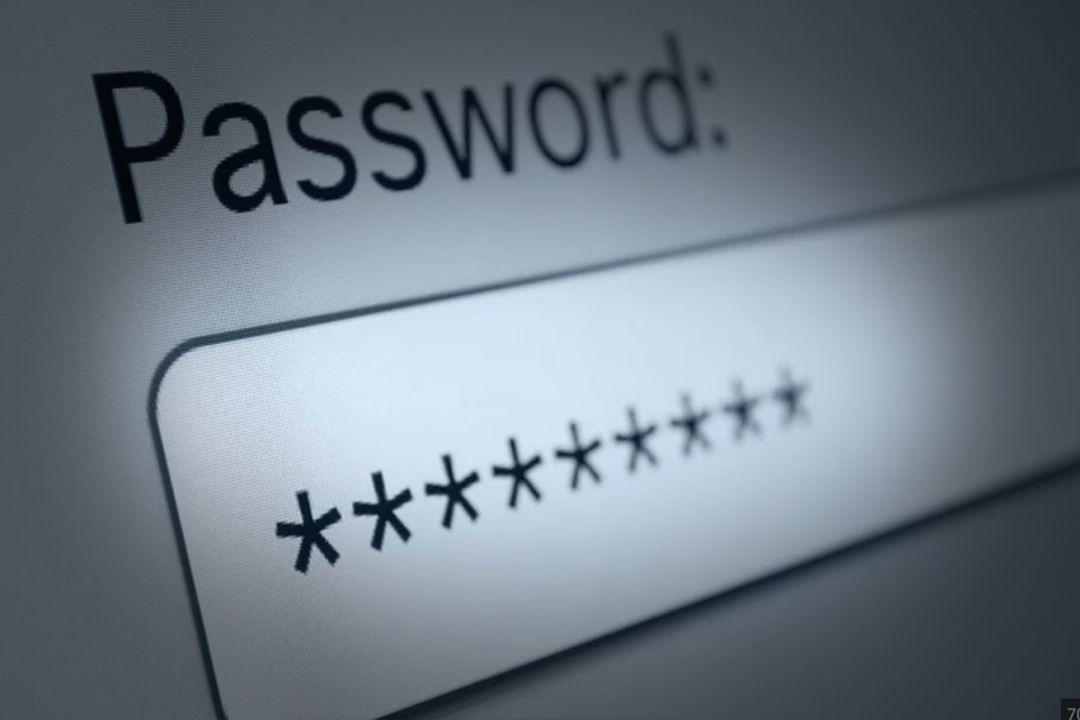
The Importance of Changing Passwords: Enhancing Security Amidst Inconvenience In today's digital age, where our lives are increasingly intertwined with technology, the security of our personal information is paramount. One of the simplest yet most effective measures we can take to protect ourselves online is regularly changing our passwords. While this practice may seem inconvenient at times, its significance cannot be overstated. Why Change Passwords? Passwords are the first line of defense against unauthorized access to our accounts, whether it's our email, social media profiles, online banking, or other sensitive information. Over time, however, passwords can become compromised due to various factors: 1. Data Breaches: Large-scale breaches happen frequently, exposing millions of passwords to cybercriminals. 2. Phishing Attacks: Deceptive attempts to trick users into revealing their passwords are increasingly sophisticated. 3. Weak Passwords: Passwords that are easy to guess or reuse across multiple accounts are vulnerable. Regularly changing passwords mitigates these risks by reducing the window of opportunity for attackers to use compromised credentials. Even if your password hasn’t been directly exposed, changing it periodically adds an extra layer of security. Best Practices for Strong Passwords When updating passwords, it’s crucial to adhere to best practices to maximize security: • Complexity: Use a mix of uppercase letters, lowercase letters, numbers, and special characters. • Length: Aim for a minimum of 12 characters; longer passwords are generally more secure. • Uniqueness: Avoid using the same password across multiple accounts to prevent a single breach compromising all your accounts. • Avoid Personal Information: Refrain from using easily guessable information like birthdates or pet names. Managing the Inconvenience Despite understanding the importance of changing passwords, many users find it inconvenient. Here are some tips to manage this process effectively: • Password Managers: These tools securely store and generate passwords, making it easier to maintain unique and strong passwords across accounts. • Set Reminders: Use calendar reminders or built-in features of password managers to prompt regular password updates. • Two-Factor Authentication (2FA): Enable 2FA wherever possible to add an extra layer of security beyond passwords. The Bottom Line While changing passwords might seem like a hassle, it’s a small inconvenience compared to the potential consequences of a security breach. By doing so, you’re actively taking control of your online safety and reducing the risk of falling victim to cyberattacks. Whether you’re protecting personal information or sensitive business data, regular password changes are a crucial step in safeguarding against cyber threats.
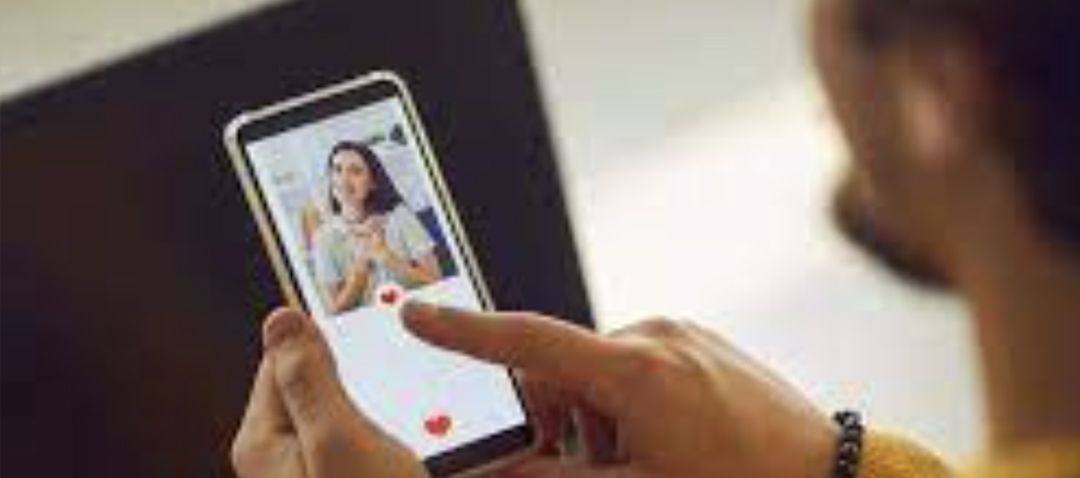
Is it love, or is it a scam: Navigating the Perils of Romance Scams In today’s digital age, finding love online has become increasingly common. Dating apps, social media platforms, and matchmaking websites offer convenient avenues to connect with potential partners worldwide. However, amidst the possibilities of romance lie lurking dangers—romance scams. These fraudulent schemes prey on individuals seeking companionship, exploiting their emotions and trust for financial gain. The Rise of Romance Scams Romance scams have surged in recent years, fueled by the proliferation of online dating and social media. According to the Federal Trade Commission (FTC), Americans reported losing a staggering $547 million to romance scams in 2020 alone. Since then, those numbers have only continued to rise. How Do Romance Scams Work? Typically, romance scammers create fake profiles on dating sites or social media platforms, portraying themselves as sincere and attractive individuals. They invest time in building a relationship with their victims, showering them with affection and attention to foster a sense of intimacy. Once trust is established, the scammer often fabricates a crisis—a sudden illness, a financial emergency, or a need to visit the victim—which requires money to resolve. Warning Signs to Look Out For Recognizing the signs of a romance scam can prevent devastating financial and emotional losses: 1. Too Good to Be True: Scammers often present themselves as ideal partners, displaying an unnaturally perfect profile. 2. Quick Professions of Love: Declarations of love or intense emotions early in the relationship may indicate manipulation. 3. Requests for Money: Be wary of sudden requests for financial assistance, especially if the person has not met you in person. 4. Inconsistencies in Stories: Pay attention to inconsistencies in their background or details that don’t add up over time. Protecting Yourself Against Romance Scams 1. Verify Identity: Use reverse image searches or request video calls to verify the person's identity. 2. Guard Personal Information: Limit the amount of personal information shared online, especially financial details. 3. Remain Cautious: No matter the trust level that has been established, always question unusual requests for money or assistance, especially if the person claims it’s urgent. 4. Report Suspicious Activity: If you suspect a scam, report it to the platform where you met the individual and to authorities like the FTC or local law enforcement.

Long warm-weather seasons and the abundance of beautiful lakes naturally make recreational boating a popular pastime on area lakes. Sadly, each year tallies thousands of boating accidents and hundreds of fatalities, statistics that are inevitably increased due to impaired vessel operators. Needless to say, other factors influence boating accidents, but it is safe to say none of them listed here is more easily avoidable, or in the operator's full control than operating a watercraft under the influence of alcohol or drugs. Here are some important reminders of how to keep yourself and your loved ones safe while boating. WHY ARE BOATING ACCIDENTS SO DANGEROUS? Unlike an accident on dry land, emergency medical assistance is not readily available on the water. And, if the boat operator is injured, there may not be anyone else who can summon help or drive the boat to shore. In addition, drowning is the cause of an overwhelming majority of boating accident fatalities (79%). When a vessel operator or passenger goes into the water as the result of a crash, it is unlikely that help will arrive in time to save them. Knowing that many of these deaths could have been prevented if the victims had worn life jackets makes the statistics even more tragic. WHAT ARE THE MOST COMMON CAUSES OF BOATING ACCIDENTS? The U.S. Coast Guard identifies the following top 10 causes of recreational boating accidents: Alcohol use (by boat drivers and passengers) Operating a watercraft under the influence of alcohol or drugs is dangerous AND illegal. Alabama boating laws state that "No person shall drive or be in actual physical control of a vessel or manipulate any water skis, aquaplane, or any other marine transportation device while: there is 0.08% or more by weight of alcohol in the blood. (BAL) under the influence of alcohol. under the influence of a controlled substance. under the combined influence of alcohol and a controlled substance. under the influence of any substance that impairs the mental or physical faculties of the person. Refusal to submit to a field breath test or other approved testing shall result in the same punishment as provided for operators of motor vehicles on the state highways (automatic suspension of vessel license). Operator inattention Many accidents are caused by a distracted operator who fails to notice an oncoming vessel, sudden squall, swimmers, or other impending danger. Improper lookout For decades best-practice guidelines have recommended a second individual be assigned the role of "spotter" in recreational boating. The spotter's role is to be an extra lookout for swimmers or other potential hazards so the vessel operator can focus solely on controlling the vessel. Like a distracted boat driver, a designated lookout person who is not paying attention may inadvertently cause an accident by failing to warn the operator about potential hazards. Lack of operator instruction and experience Some data shows as much as 70% of boating fatalities occur on boats where the operator had not received proper boating safety instructions. In contrast, fatal accidents involving operators who had earned nationally-approved boating safety education certificates typically make up less than 20% of annual fatality totals. Experience as a boat operator can be harder to gain as recreational boating does not usually occur on a daily basis. Excessive speed Just like on public highways, speeding is a major cause of serious boating accidents. In fact, driving a boat at high speed can be more dangerous than speeding in a car because it takes more time to stop or change direction in order to avoid a crash Machinery or equipment failure A defective part or equipment malfunction can cause a serious accident. This could be caused by poor maintenance or a flaw in the design or manufacture of the vessel or equipment. Navigation rules violation Being unfamiliar with the rules governing certain lakes and waterways can result in collisions where people are injured or killed. Navigational laws can vary, even within the same state, so it’s wise to become familiar with the rules for each destination. Hazardous weather conditions Weather can change rapidly, especially in large bodies of water. Even if the weather is fair at the beginning of a ride, boat operators should monitor weather reports throughout the trip and watch for changing conditions. Rough water due to currents or tidal flow Sudden shifts in the current or tide can result in rough and hard-to-navigate waters, particularly for smaller boats. Therefore, operators should be extra cautious when entering areas that are known for these conditions. Force of wave/wake When the hull of a boat moves through the water, it creates waves that are known as a wake. Depending on the size and speed of the boat, these waves can be quite strong. In addition, a wake created by a large boat can cause a smaller boat to capsize or veer into another boat. View the full Alabama boating laws page online
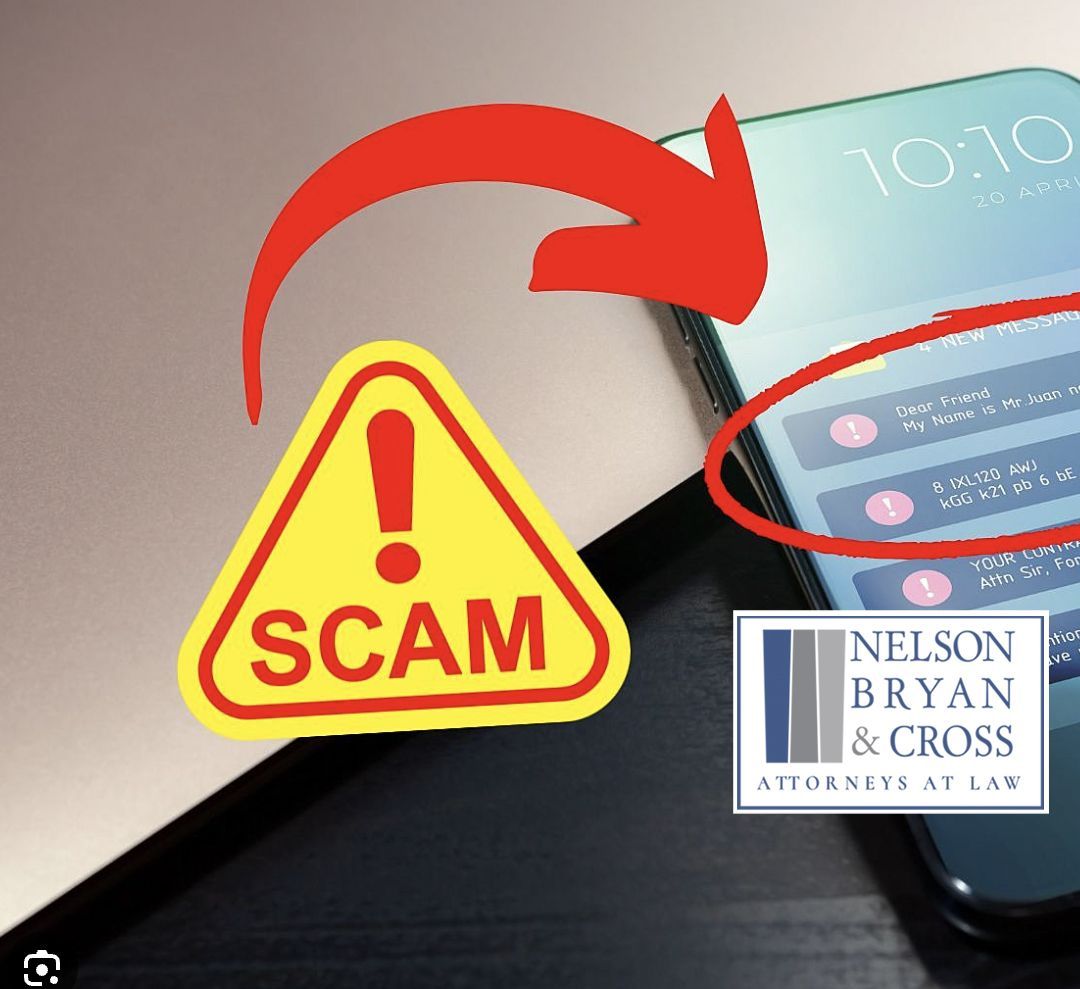
Telephone Scams and Mail Fraud have been around for a long time, with bad actors attempting to take advantage of innocent and vulnerable people. When email became common in our society, it didn't take the bad guys long to adapt their tactics and modern culture called these new forms of email attacks "Phishing Scams." Now, more than ever, modern smartphones allow business to be conducted by text and it is not surprising that scammers are once again targeting this new technology. The common goal of all of these attacks is to steal money from unsuspecting victims. The technical name for what most of us call a text message is SMS, which stands for "Short Message Service." Combining this new acronym with the now common email Phishing Scam gives us "Smishing Scams," yet another threatening term those of us doing business on our phones need to be alert to. Like phishing emails, smishing texts are social-engineering scams that aim to manipulate people into turning over sensitive data such as Social Security numbers, credit card numbers, and account passwords or providing access to a business computer system. They rely on persuading you that the sender is a familiar or trusted source and that urgent action is needed to secure a benefit, resolve a problem, or avert a threat. They might come from a mobile provider, or a service like Netflix or PayPal , claiming your account has expired or been locked, and you need to provide personal information or click on a link to reactivate it. That gives the scammers the means to steal your money or identity or to infect your device with malware. Bogus bank fraud warnings were the most common type of text-based scams reported to the Federal Trade Commission (FTC) in 2022 — up nearly 20-fold since 2019. These texts will often appear to be from major banks like Wells Fargo or Bank of America, with urgent messages for customers to verify a transaction, according to the agency. Also extremely common: fake delivery-related text messages , purportedly from the likes of Amazon, FedEx, or the U.S. Postal Service about an impending package or a shipment snafu . You may be sent to a website, where you’re asked to verify your address and perhaps pay a small “redelivery fee.” But variations abound. A scam text might say you've won a lottery prize or a gift card , or promise a break on break on student loan debt . It could look like an alert from a government agency such as Social Security or the IRS or a link to a phony invoice or cancellation notice for a product or service you supposedly bought. WARNING SIGNS YOU CAN LEARN TO SPOT: A text message requests personal information, such as your Social Security number or an online account password. The message asks you to click a link to resolve a problem, win a prize, or access a service. The message claims to be from a government agency. Government bodies seldom initiate contact with someone by phone or text, according to the Federal Communications Commission (FCC). WHAT CAN YOU DO TO HELP PROTECT YOURSELF AND YOUR FAMILY? Consider using tools that filter or block unwanted messages or unknown senders: Your mobile device may have built-in spam protection. Check the settings on its messaging app. Most major wireless carriers offer call-blocking services . Some call-blocking apps (see “More resources” below) also filter out junk texts. Don’t reply, even if the message says you can “text STOP” to avoid more messages. That tells the scammer or spammer your number is active and can be sold to other bad actors. Don’t assume a text is legitimate because it comes from a familiar phone number or area code. Spammers use caller ID spoofing to make it appear the text is from a trusted or local source. Never click on links in suspicious texts. They could install malware on your device or take you to a site that does the same. Contact the company or organization that supposedly sent the text, using a phone number or website you know to be legitimate, if you think it might concern a genuine problem.

The period between Memorial Day and Labor Day is historically the most dangerous time of year for teen drivers. Some research shows up to 30% of all teen driving fatalities occur during the summer months. Teen drivers lack experience, and the summer months provide multiple reasons for increased risk. Not only is there more daylight and warmer weather, but most teens are out of school and have more free time to be behind the wheel. Here are five safety tips for your teen driver to practice, not just in the summer months but all year long. 1. Avoid Distraction . Research shows as high as 60% of all teen vehicle crashes involve driver distraction. One common misconception is that cell phones are the number one cause of distraction for teen drivers but that is actually not the case. Other passengers create more distractions for teen drivers than any other source. 2. Buckle Up . It is discussed so often that it may seem trite but seatbelt use is proven to reduce fatality rates in motor vehicle accidents. but data shows buckling up can reduce the risk of fatal injury by as much as 45%. 3. Impaired Driving . As high as 15% of all teen driving fatalities involve a blood alcohol content of more than twice the legal limit. 4. Limit Passengers. Most states, including Alabama, have graduated license laws restricting the number of passengers in vehicles operated by teen drivers. Literally all available data associates fewer passengers with lower fatality rates in motor vehicle accidents involving teen drivers. 5. Reduce Nighttime Driving. The fatal crash rate of 16-19-year-olds is nearly 400 times higher at night than during the day.

Identity theft affects millions of people each year and can cause serious harm. Protect yourself by securing your personal information, understanding the threat of identity theft, and exercising caution. Here are 10 things you can start doing now to protect yourself and your loved ones from identity theft: Protect your Social Security number by keeping your Social Security card in a safe place at home. Don’t carry it with you or provide your number unnecessarily. Be careful when you speak with unknown callers. Scammers may mislead you by using legitimate phone numbers or the real names of officials. If they threaten you or make you feel uneasy, hang up. Create strong, unique passwords so others can’t easily access your accounts. Use different passwords for different accounts so if a hacker compromises one account, they can’t access other accounts. Check out the Federal Trade Commission’s password checklist for tips. Never give your personal or financial information in response to an unsolicited call or message, and never post it on social media. Shred paper documents that contain personal information, like your name, birth date, and Social Security number. Protect your mobile device from unauthorized access by securing it with a PIN, adding a fingerprinting feature, or using facial recognition. You can also add a password and adjust the time before your screen automatically locks. Regularly check your financial accounts for suspicious transactions. You can also request and check a free credit report from each of the three credit bureaus every year: TransUnion , Equifax , and Experian . Avoid internet threats by installing and maintaining strong anti-virus software on all your devices—including your mobile device and personal computer. Use a virtual private network (VPN) to stay safe on public Wi-Fi. Do not perform certain activities that involve sensitive data, like online shopping and banking, on public Wi-Fi networks. Protect yourself on social media by customizing your security settings and deleting accounts you no longer use. Also, double-check suspicious messages from your contacts, as hackers may create fake accounts of people you know. Never click on any link sent via unsolicited email or text message—type in the web address yourself. Only provide information on secure websites.
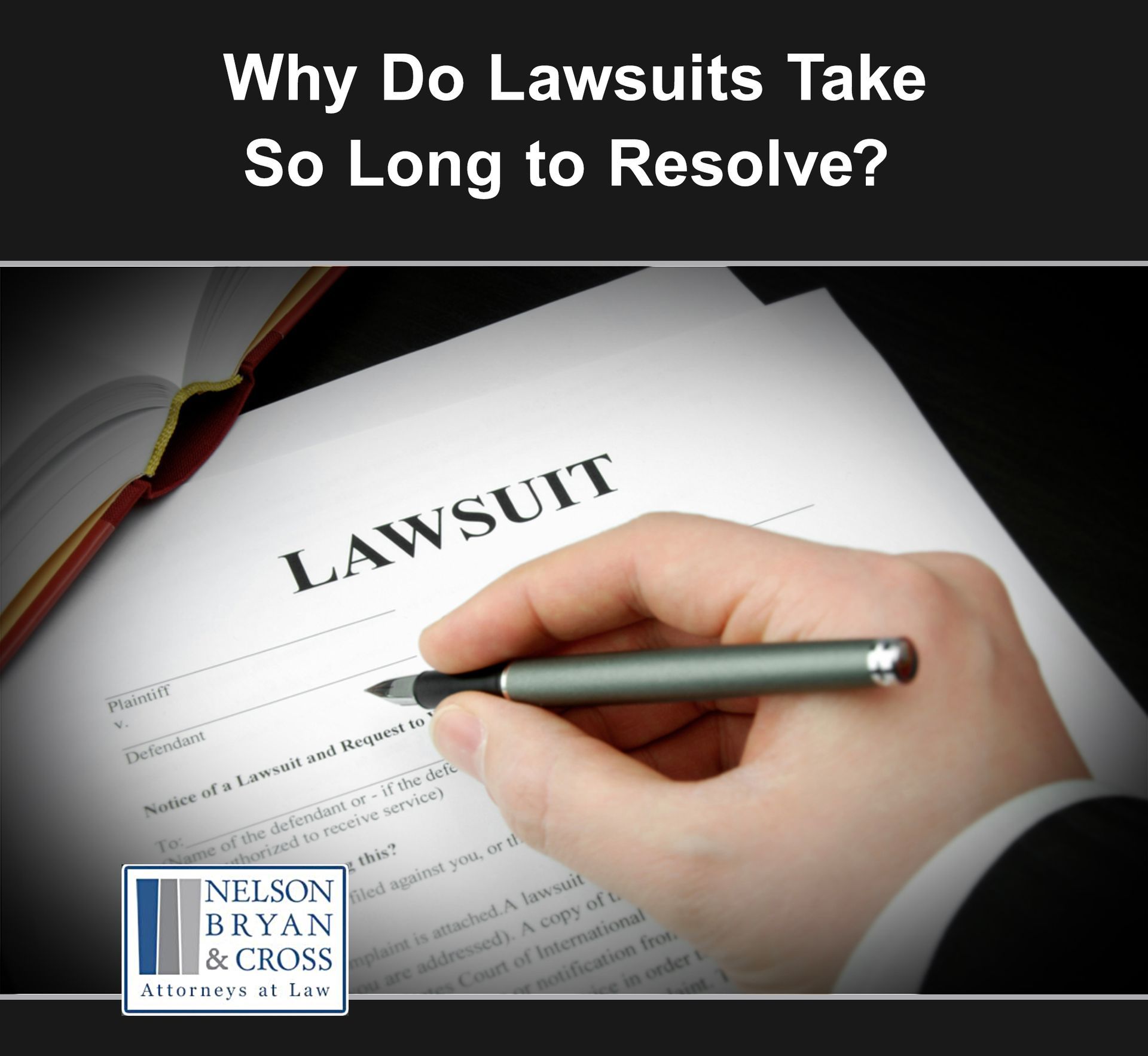
Every accident case is different. Some settle more quickly than others. However, it is not uncommon, for a personal injury case to take a year or more to resolve after the case has been filed in court. Evaluating the Injury Prior to filing a lawsuit, it takes time to determine the full extent of your injuries. Doctors are often unable to give an opinion about the seriousness of an injury until your condition has stabilized. In serious injury cases, it may even take a year after the accident before your doctor can say whether or not your injuries are permanent. It is extremely important to take the necessary time to fully evaluate your injuries. You have only one chance to prove the extent to which you have been harmed. Once you accept a settlement offer, that decision is final. You cannot go back and ask for more money if you later find out your injuries are more serious. An experienced personal injury attorney knows how to keep your case moving through the legal system. Your personal injury case may move through these stages: 1. Written Discovery The written discovery period can last over six months. You will be asked to answer written questions (interrogatories) under oath. You will also be asked to produce documents or authorize others to produce documents such as accident reports and medical records. 2. Depositions During a deposition, you will be asked questions under oath. A court reporter types a record of everything that is said. Not only will you be questioned about the accident and your injuries, you will be asked questions about what your health, education, and work were like before the accident. 3. Mediation and Settlement The Court almost always requires a settlement conference or mediation before personal injury cases can go to trial. At mediation, a neutral trained mediator goes over the issues and evidence with the parties to help guide them toward a settlement agreement. 4. Trial If your case does not settle and goes to trial, a jury decides what your injury is worth. It can take eighteen months or longer to get the trial scheduled. Once the trial is over, there may be further appeals and motions. It's possible for the parties to settle the case during trial or even after trial in order to end an appeal. Your best strategy is to contact an attorney with experience in handling personal injury cases. Your attorney can give you an estimate about the length of time it takes to resolve your type of case. Also, ask your attorney to give you frequent reports on the status of your case so you know that your case is making its way through the legal process. It's understandable that you may be frustrated at the speed your case seems to be moving. However, you should never rush to take the first settlement offer made by an insurance company. The first offer is rarely your best settlement offer. .
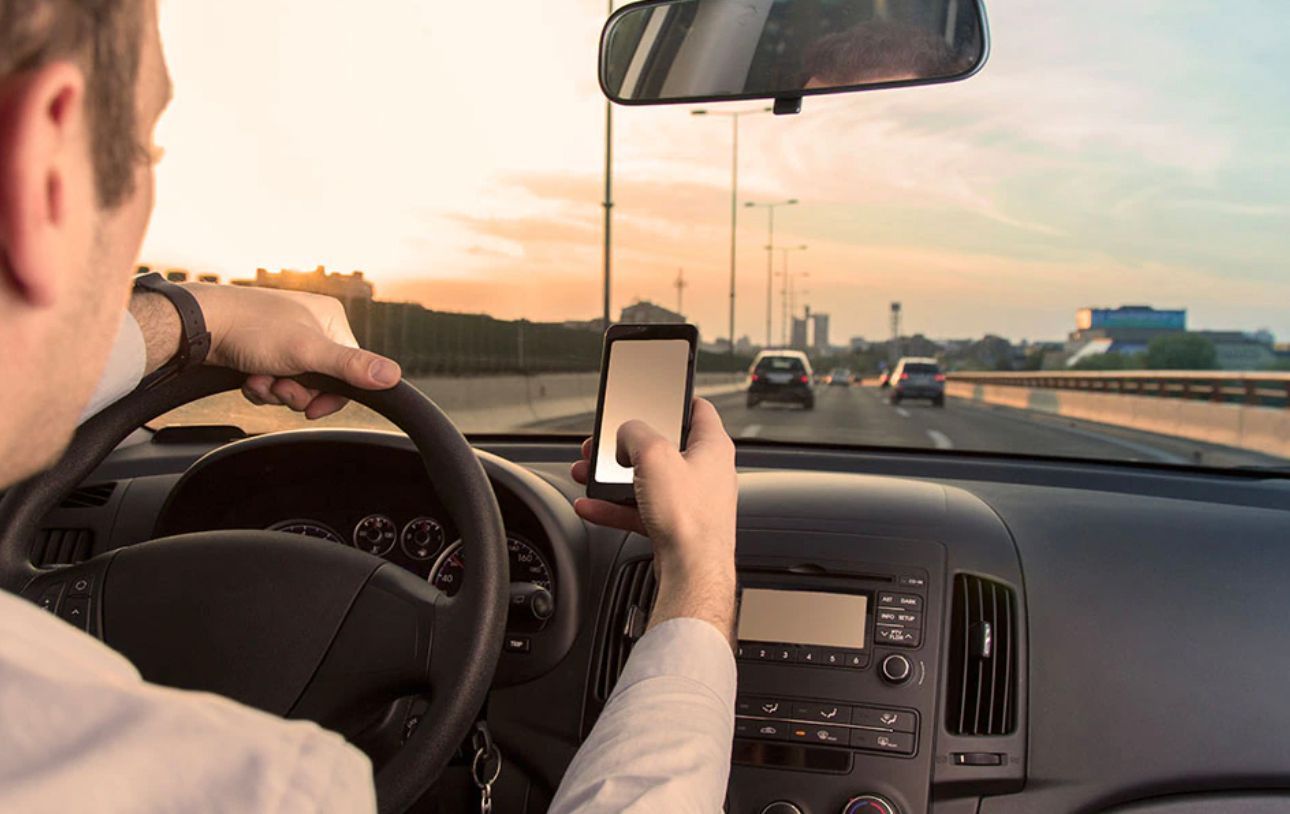
Distracted driving has been on the increase for the last several years and continues to be one of the leading causes of vehicle accidents throughout the United States. If you are texting and driving down the highway at 55 mph, that’s like traveling the length of a football field with your eyes closed. You can only drive safely when your full attention is on the road. Any activity that isn’t related to driving is a potential distraction and increases your risk of a collision. While most research points to a mobile phone as the number one culprit, it is far from the only activity potentially stealing a driver's attention. Eating or drinking, grooming, radios, other passengers - especially children, and even pets can also be significant factors. Distracted driving accidents are preventable 99% of the time. Driving can become mundane at times, but we all must remember when driving we have an obligation to the safety of not only ourselves but those who ride with us and other drivers we share the road with. Some studies show listening to podcasts or certain types of music can enhance our concentration. It’s important to practice safe habits behind the wheel. You want to make sure that your passengers know how serious you are about driving without distractions. One of the most effective ways to lead is through example. Be a good example for your friends and family by avoiding driving while you’re distracted.
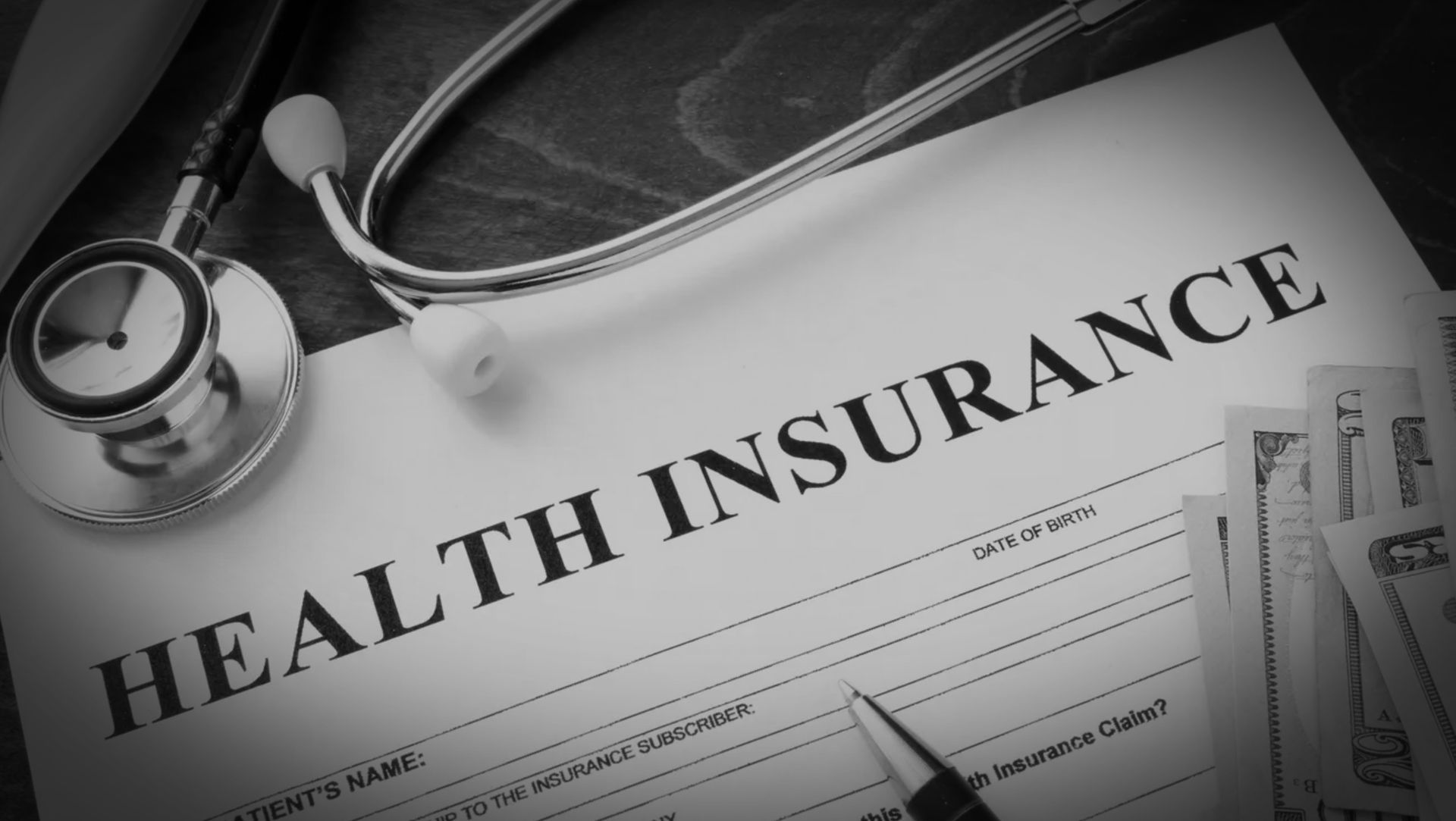
We see this question all the time. The injured party doesn’t want to use their own health insurance to pay for an injury. They believe it is the responsibility of the person at fault to pay for their medical bills. That may feel like the right position for an accident victim to take but the truth is, most of the time the injured party will end up with a larger settlement if they do, in fact, use their own medical benefits. Here's why; Health insurance companies have a negotiated price for medical services that is about 15 percent less than what people have to pay who don’t have health insurance. If your medical bills are $50,000.00 but Blue Cross Blue Shield pays $15,000.00 and the person who caused the wreck has $50,000.00 in liability coverage, that leaves $35,000.00 available for the injured party versus $0.00. Generally speaking, Blue Cross Blue Shield will reduce the $15,000.00 to $10,000.00 leaving $40,000.00 available. The point is that there’s more money available when you take advantage of your healthcare negotiated rates whether it’s United Health Care, Medicare, Medicaid, or Blue Cross Blue Shield. More money is better. Using your health insurance to pay your medical bills if you are injured, will almost always end up maximizing your settlement.
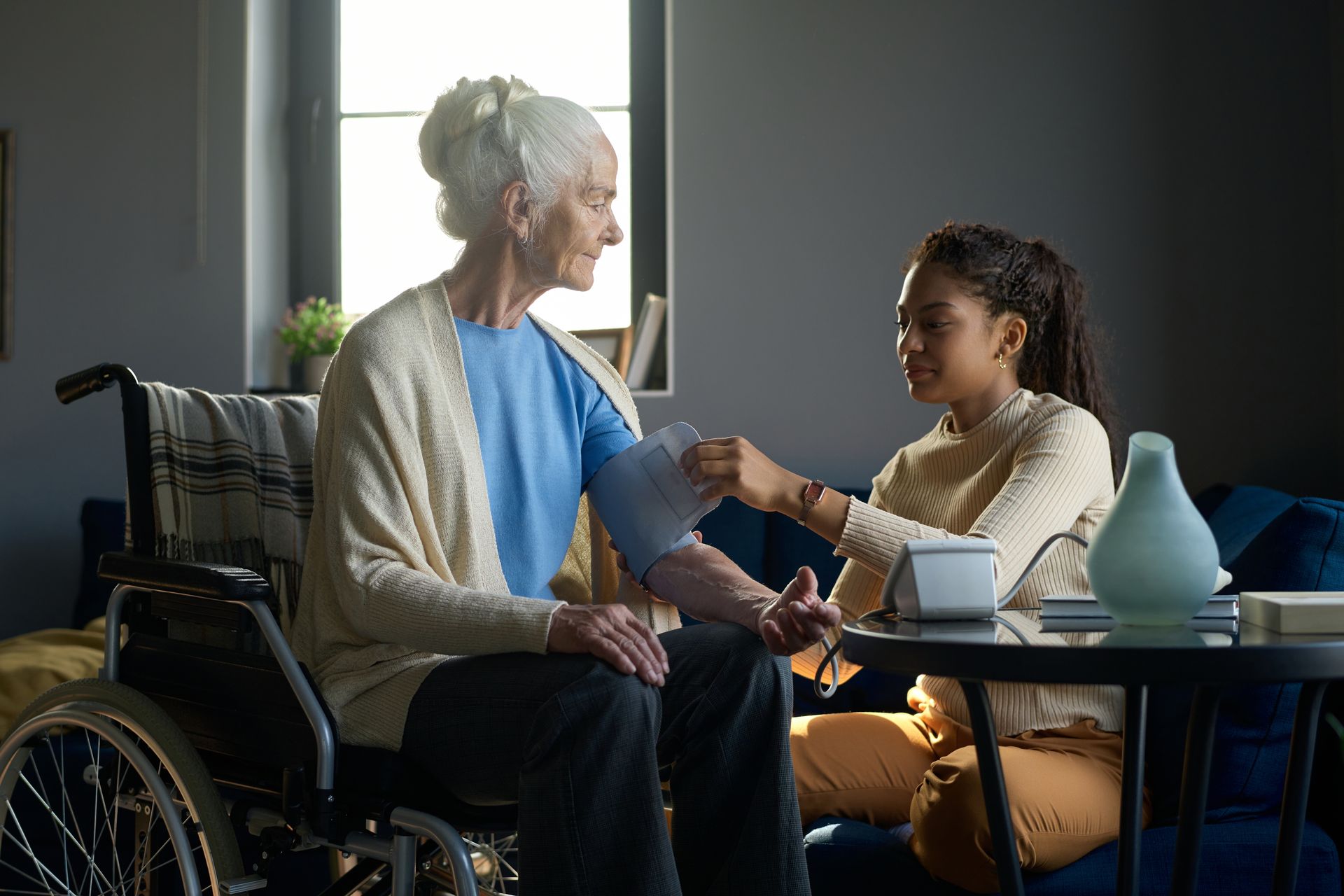
Once you reach the age of 65 you have many more options than before. As you know if you go on Medicare and you are under the age of 65 your options for health plans are limited. When you turn 65 you will have another open enrollment period to sign up for any plan you wish to get. In other words, just because you are already on Medicare does not prohibit you from having all the options a person not on Medicare and turning 65 would have.